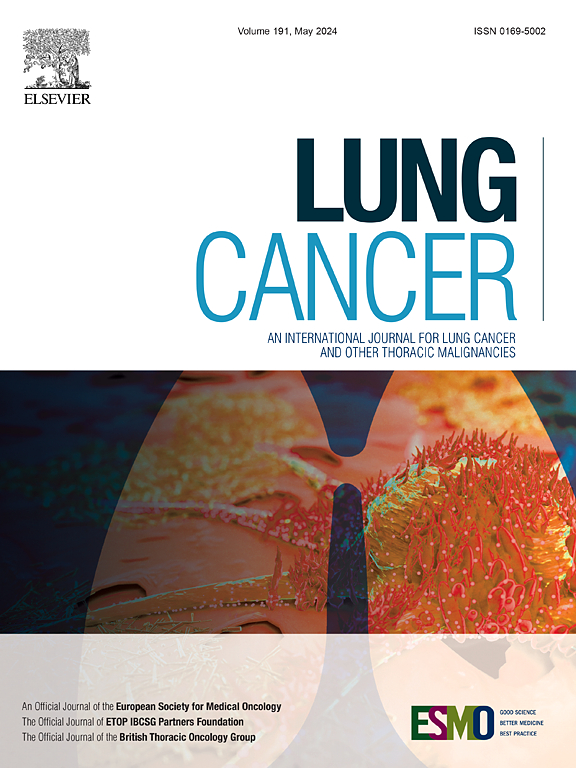加拿大观点再访:对alk重排非小细胞肺癌治疗的共识。
IF 4.4
2区 医学
Q1 ONCOLOGY
引用次数: 0
摘要
抑制晚期非小细胞肺癌(NSCLC)的间变性淋巴瘤激酶(ALK)致癌驱动因子可提高生存率。2016年和2018年,加拿大胸部肿瘤学专家发表了关于ALK重排患者的识别和治疗的共识,建议使用第一代和第二代ALK抑制剂作为晚期患者的初始和后续治疗。新的科学文献有必要更新共识。回顾了ALK抑制剂关键和III期临床试验,以评估与目前加拿大ALK重排NSCLC患者指南相关的益处、风险和影响。更新的加拿大alk -重排NSCLC管理建议:我们的共识建议强调了alk -重排NSCLC管理的主要进展及其与加拿大背景的相关性。我们强烈支持前期ALK检测,使用辅助alectinib治疗高风险切除患者,以及使用下一代ALK抑制剂(lorlatinib, alectinib, brigatinib)作为晚期患者的初始治疗。本文章由计算机程序翻译,如有差异,请以英文原文为准。
Canadian Perspectives Revisited: Consensus on the management of ALK-rearranged NSCLC
Inhibition of the anaplastic lymphoma kinase (ALK) oncogenic driver in advanced non-small cell lung carcinoma (NSCLC) improves survival. In 2016 and 2018, Canadian thoracic oncology specialists published consensus on the identification and treatment of ALK-rearranged patients, recommending use of first- and second-generation ALK inhibitors, as initial and subsequent treatment in the advanced setting. New scientific literature warrants a consensus update.
ALK inhibitor pivotal and phase III clinical trials were reviewed to assess benefits, risks, and implications relative to current Canadian guidance for ALK-rearranged NSCLC patients.
Updated Canadian recommendations for management of ALK-rearranged NSCLC:
- •Resected patients considered to be at high risk of recurrence (stage IB [tumors ≥ 4 cm] to IIIA) should receive alectinib as the new standard of care for adjuvant treatment.
- •Patients with treatment-naïve advanced disease should be treated with lorlatinib (preferred), alectinib or brigatinib.
- •Patients previously-treated with second-generation inhibitors should receive lorlatinib.
- •Patients progressing on crizotinib can be offered alectinib (preferred), brigatinib (preferred), lorlatinib or ceritinib.
- •Patients exhausting ALK-directed therapy options should be considered for pemetrexed-based chemotherapy or clinical trials.
- •Use of immunotherapy regimens is not recommended.
- •Patients with early and advanced stage NSCLC must undergo molecular testing for ALK rearrangements.
求助全文
通过发布文献求助,成功后即可免费获取论文全文。
去求助
来源期刊

Lung Cancer
医学-呼吸系统
CiteScore
9.40
自引率
3.80%
发文量
407
审稿时长
25 days
期刊介绍:
Lung Cancer is an international publication covering the clinical, translational and basic science of malignancies of the lung and chest region.Original research articles, early reports, review articles, editorials and correspondence covering the prevention, epidemiology and etiology, basic biology, pathology, clinical assessment, surgery, chemotherapy, radiotherapy, combined treatment modalities, other treatment modalities and outcomes of lung cancer are welcome.
 求助内容:
求助内容: 应助结果提醒方式:
应助结果提醒方式:


